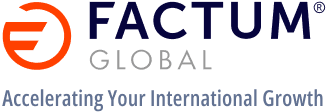Blog
A Comprehensive Guide for Foreign Companies Expanding into the US
Understanding Beneficiary Owner Rules
Beneficiary owner rules refer to regulations that mandate the disclosure of ultimate ownership and control of a business entity. The goal is to provide transparency and prevent the misuse of corporate structures for illegal activities such as money laundering, fraud, and tax evasion.
For foreign companies eyeing the US market, navigating these rules is crucial for both legal compliance and establishing a trustworthy business presence.
Key Requirements
- Companies must diligently identify and disclose their ultimate beneficiary owners. This includes individuals who own or control at least 25% of the entity.
- Detailed information such as names, addresses, dates of birth, and social security numbers or passport numbers must be provided for each beneficiary owner.
- Robust verification procedures are essential to ensure the accuracy of beneficiary owner information.
- Foreign companies need to implement due diligence measures, such as obtaining certified copies of identification documents, to verify the identity of their ultimate owners.
- Compliance with beneficiary owner rules is not a one-time obligation. Companies must establish systems for ongoing monitoring to update beneficiary owner information in case of changes.
- Regular internal audits and assessments should be conducted to identify and address any discrepancies promptly.
Insightful Tips for Compliance:
1. Proactive Compliance Management:
- To navigate beneficiary owner rules successfully, foreign companies should adopt a proactive approach to compliance management.
- Establishing a dedicated compliance team or seeking assistance from experts in US regulatory requirements can mitigate risks and ensure adherence to the rules.
2. Educate Internal Stakeholders:
- Ensure that key personnel within the organization are well-informed about the new beneficiary owner rules. This includes legal, financial, and operational teams.
- Conduct training sessions to educate employees on compliance procedures and the importance of accurate beneficiary owner disclosures.
3. Engage with Regulatory Authorities:
- Establish open lines of communication with regulatory authorities. Understanding their expectations and requirements can streamline the compliance process and prevent potential issues.
4. Utilize Technology Solutions:
- Leverage technology solutions, such as specialized software for compliance management and identity verification, to enhance accuracy and efficiency.
- These tools can automate certain processes and reduce the likelihood of errors associated with manual data entry.
Partner with Factum Global:
Amidst the complexity of beneficiary owner rules, foreign companies can find a trusted ally in Factum Global. As a consulting firm focused on helping organizations with their international business expansion, we offer a range of services designed to facilitate a seamless US market entry.
1. Expert Guidance:
- Our team comprises seasoned experts with in-depth knowledge of the US market. They can provide invaluable guidance on navigating beneficiary owner rules and ensuring compliance.
2. Tailored Compliance Solutions:
- We understand that each business is unique. We offer tailored compliance solutions that align with the specific needs and structures of foreign companies, minimizing the burden of regulatory adherence.
3. Comprehensive Due Diligence:
- With a commitment to due diligence, we and our partners assist foreign entities in conducting comprehensive checks to verify the accuracy of beneficiary owner information. This proactive approach helps mitigate risks and ensures a smooth compliance process.
4. Ongoing Support:
- Factum Global doesn’t just assist with initial compliance; our services extend to market research, and strategy development, and include ongoing support as an extension of your team.
In the face of evolving regulatory landscapes, the importance of a knowledgeable and experienced partner cannot be overstated. Foreign companies venturing into the US market should take proactive steps to ensure compliance with beneficiary owner rules.


